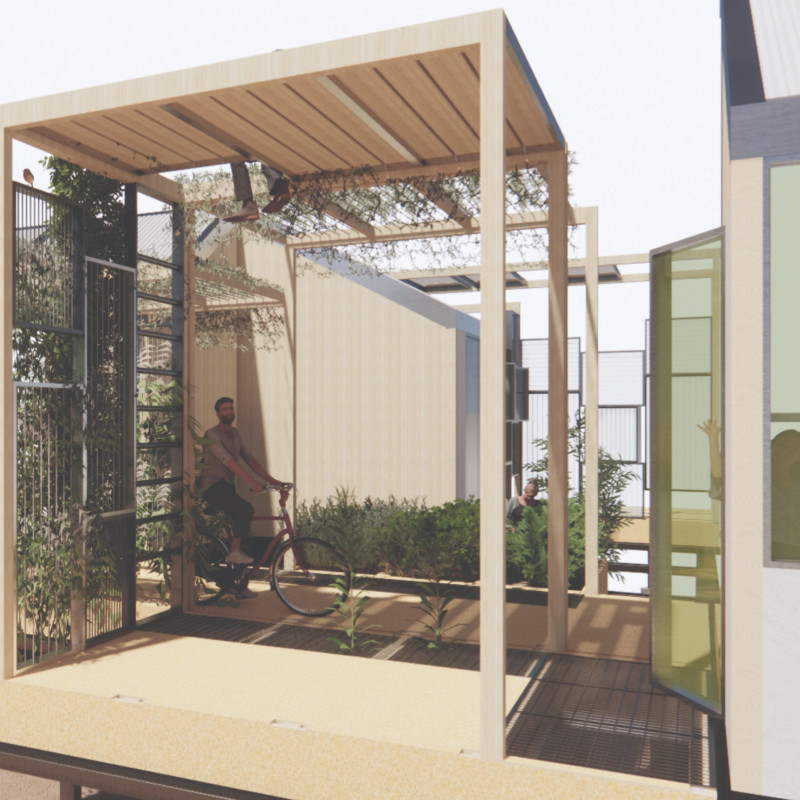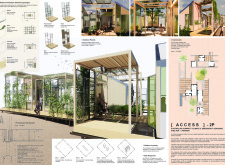5 key facts about this project
At its core, ACCESS - 2P serves as a seasonal shelter intended to respond to various needs, whether for temporary housing during emergencies or more permanent accommodations in urban or rural settings. The design embodies an innovative response to climate change and the increasing demand for resilient, flexible living spaces. With its modular framework, the project can be deployed in a range of environments, from coastal areas to arid regions, ensuring that the shelter remains practical regardless of location.
The architectural design includes several important components that contribute to its functionality and aesthetic appeal. One of the key features is the use of polycarbonate sheets, which provide transparency and durability while allowing natural light to permeate the interior. This material creates a bright and inviting atmosphere, even in the most austere environments. Additionally, weather-resistant fabric is employed as an outer layer, effectively shielding the shelter from strong winds and harsh weather conditions typical of certain regions in Australia.
The incorporation of timber louvers adds both a natural visual element and practical functionality, as they help control sunlight while providing ventilation throughout the space. This detail not only enhances the thermal comfort of the shelter but also connects the interior with the surrounding landscape, allowing residents to remain in tune with their environment.
A modular rail system facilitates easy assembly and disassembly, which is critical for a project oriented toward emergency response or seasonal use. This level of adaptability is a significant achievement in architectural design, highlighting the ability to cater to varying needs through a straightforward construction process. The outdoor panels are another remarkable element of ACCESS - 2P, as they can be interchanged based on seasonal requirements or specific climatic conditions. This feature allows residents to have a customized living experience and optimize their comfort throughout the year.
The layout of ACCESS - 2P prioritizes community living by encouraging clusters of shelters that foster social interactions among residents. This communal approach is a notable aspect of the design, as it creates spaces for gatherings and shared activities, reinforcing community ties. The arrangement of these units contributes to a sense of belonging and support, essential in both transitional and emergency living situations.
The project's emphasis on ecological consciousness is reflected in its material selection and design strategies. By integrating sustainable materials, ACCESS - 2P minimizes its environmental impact while providing a high level of utility and comfort for its occupants. The thoughtful landscaping and incorporation of green spaces offer additional benefits, promoting well-being and enhancing the overall living experience.
The ACCESS - 2P project represents a significant exploration in modular housing, emphasizing how architecture can respond effectively to the needs of modern living while respecting environmental considerations. This innovative design encourages viewers to delve deeper into its architectural plans and sections to appreciate fully the thoughtful strategies embedded within the structure. For those interested in contemporary architectural ideas, an exploration of ACCESS - 2P offers valuable insights into flexible living solutions that prioritize both human and environmental needs. Discover more details by examining the project presentation, where architectural elements and design philosophies are discussed in depth.























